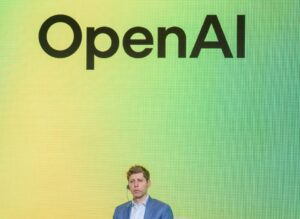Trial Scheduled for 2026 in Legal Dispute Involving Musk and OpenAI

Overview of the Musk vs. OpenAI Lawsuit
Introduction to the Legal Conflict
Elon Musk, a prominent figure in the tech world, is embroiled in a legal battle with OpenAI, an organization he co-founded. This conflict revolves around various concerns regarding the future direction of OpenAI and its leadership. Scheduled for trial in March 2026, this case has attracted significant media attention and raised questions about the governance of artificial intelligence (AI) development.
Background Information
Musk’s Role in OpenAI
Elon Musk was one of the original co-founders of OpenAI, established in December 2015 with the mission to promote and develop friendly AI that benefits humanity. However, he stepped away from the organization’s board in early 2018, citing potential conflicts of interest with Tesla’s AI development for autonomous vehicles.
The Crux of the Dispute
The root of the ongoing legal dispute stems from Musk’s belief that OpenAI has veered off course from its original principles. He asserts that the organization has become more profit-driven, which he argues contradicts its foundational goal of ensuring that AI serves humanity’s best interests. Musk’s concerns have intensified in light of OpenAI’s relationship with technology giants, including its partnership with Microsoft.
Key Developments in the Legal Battle
Upcoming Trial
The trial, set to begin in March 2026, will involve examination of various claims and counterclaims from both parties. Musk’s lawsuit is expected to delve into issues such as governance, financial practices, and ethical implications surrounding AI deployment.
Conflicting Perspectives
Musk maintains that the current direction of OpenAI could pose risks to the public, arguing for a return to a more altruistic approach. On the other side, OpenAI’s leadership, including CEO Sam Altman, defends their strategies and decisions, emphasizing their commitment to responsible AI development and safety.
Legal Proceedings Timeline
Scheduled Dates
The legal timeline includes significant dates leading up to the trial:
- Initial Filings: Musk’s initial legal actions were taken earlier this year, sparking discussions about the future of AI governance.
- Pre-Trial Hearings: Various pre-trial hearings will occur before the March 2026 trial date, during which both sides will present their arguments and evidence.
Media Coverage
The Musk-OpenAI lawsuit has garnered extensive coverage from reputable news sources. As the case progresses, numerous articles highlight emerging developments, shedding light on the intricacies of corporate governance in innovative sectors.
Implications for the AI Sector
Governance of AI
This legal battle could have broader implications for how AI organizations govern themselves and interact with their founders and large investors. As AI technology continues to advance rapidly, the outcomes of this case may set precedents for other similar organizations and influence industry standards.
Public Perception and Trust
The conflict has the potential to impact public trust in AI technologies. Stakeholders, including researchers, investors, and the general public, are closely monitoring the developments, aware that the ruling could impact their confidence in AI systems.
Final Thoughts
As this lawsuit unfolds, the tech industry will be watching closely. With major figures like Elon Musk involved, concerns about ethical AI development are likely to remain at the forefront of discussions surrounding technology and innovation. The results of the trial could shape not only the future of OpenAI but also the broader landscape of artificial intelligence governance.





